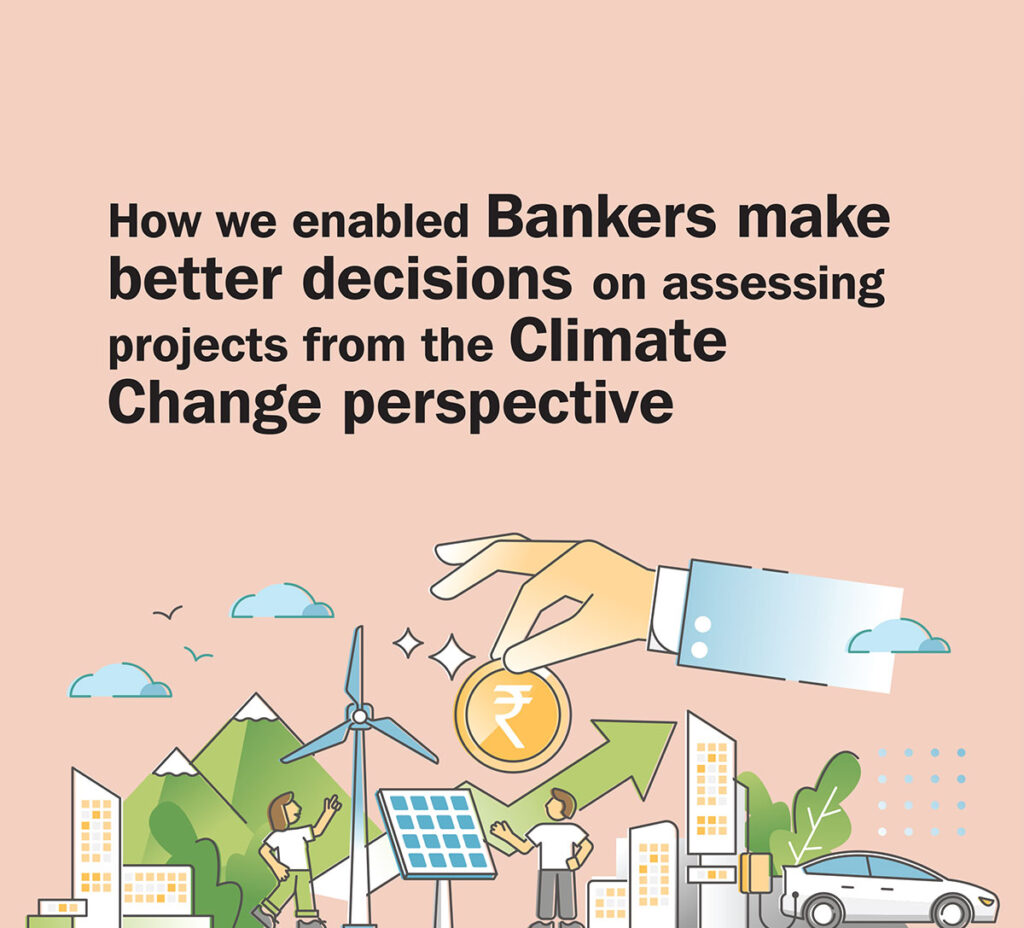
How we enabled Bankers make better decisions on assessing projects from the Climate Change perspective

Synopsis:
Bankers fund projects in rural area, often without understanding the irreparable damage that may be caused to local ecosystems. This is due to lack of awareness of undertaking environmental impact assessments along with the financial ones, which the banker is familiar with. Bankers are under pressure now to fund climate change financing projects and need to improve their competencies in evaluating such projects.
Partnering a large Multi-Lateral Agency and Ministry stakeholders, we helped develop and deploy structured curriculum around understanding climate change vulnerability and project risk assessment of climate change projects.

The Situation:
Development and climate change often do not go together. Especially if the area of development is in the rural areas as they are close to natural resources like forests, rivers, lakes, etc. While the project costs are assessed as per the standard methods, there is a need to measure the environmental impact of the project in the most objective and realistic way. Even more, there is intense pressure to finance projects that will reduce the negative impact of climate change. There is need to build capacity among those planning, designing, and financing projects to consider the environmental & climate change aspects. Teams are spread across the country and there are continuous changes to the norms and methodology. A learning portal was to be set up to allow all the stakeholders, especially bankers, to learn, share, and be updated on all relevant aspects of climate impact while financing projects and on financing climate change projects.

The Solution:
Developed a highly visual and scenario-based self-paced learning curriculum, totaling to 6.5 hours, in three phases:
- Understanding climate financing, project risk appraisal, financing instrument design and skills for bankers in assessing climate finance proposals.
- Developing concepts for climate projects.
- Climate smart and resilient agriculture and livelihoods

The Impact:
Taken live in 2022 and too early to measure impact.



